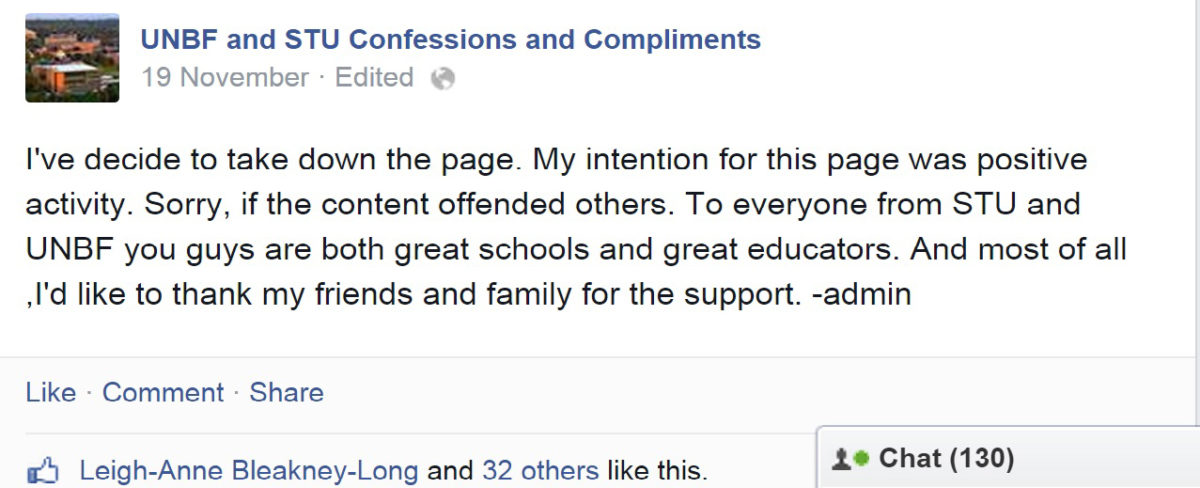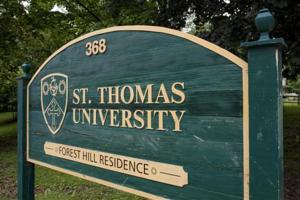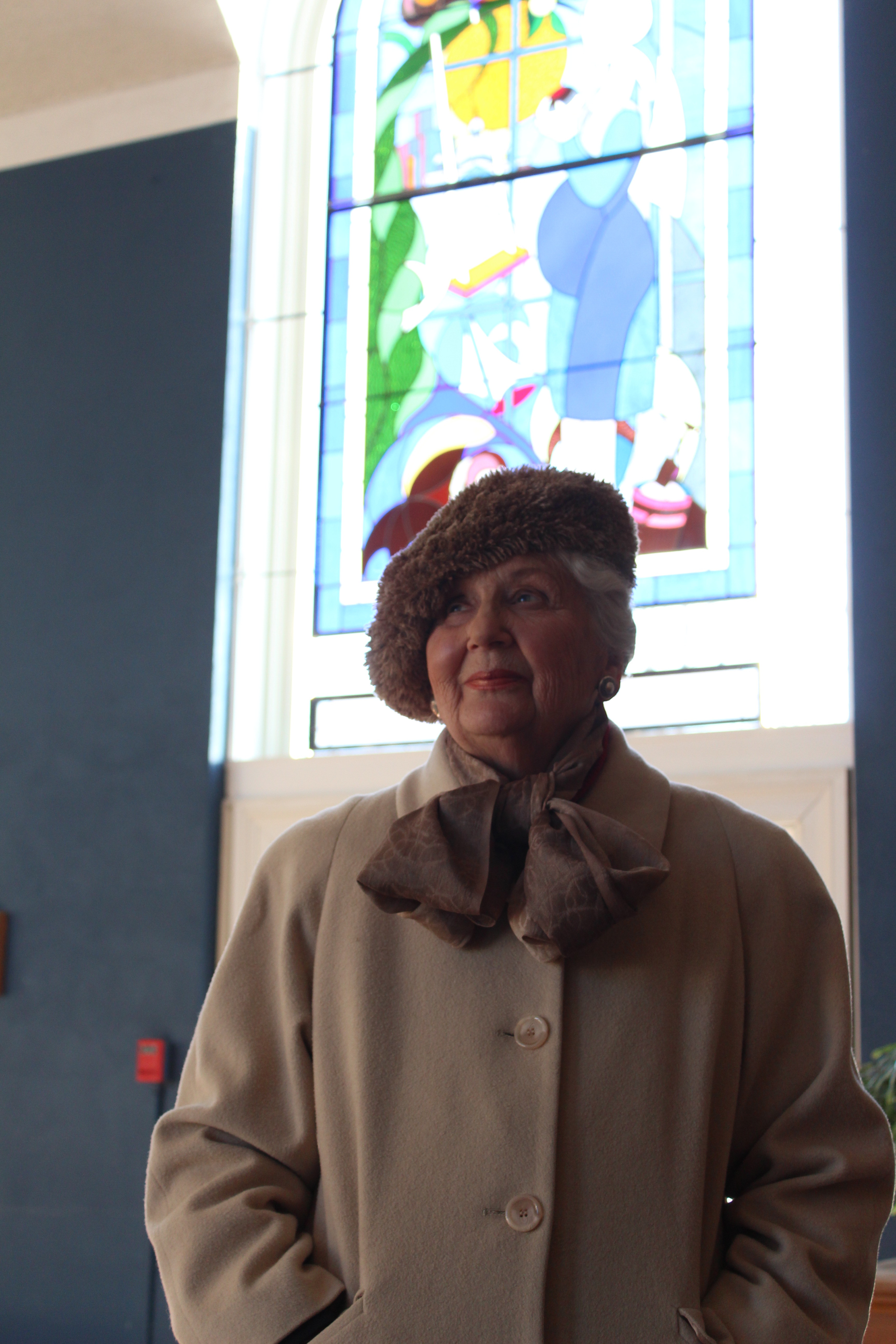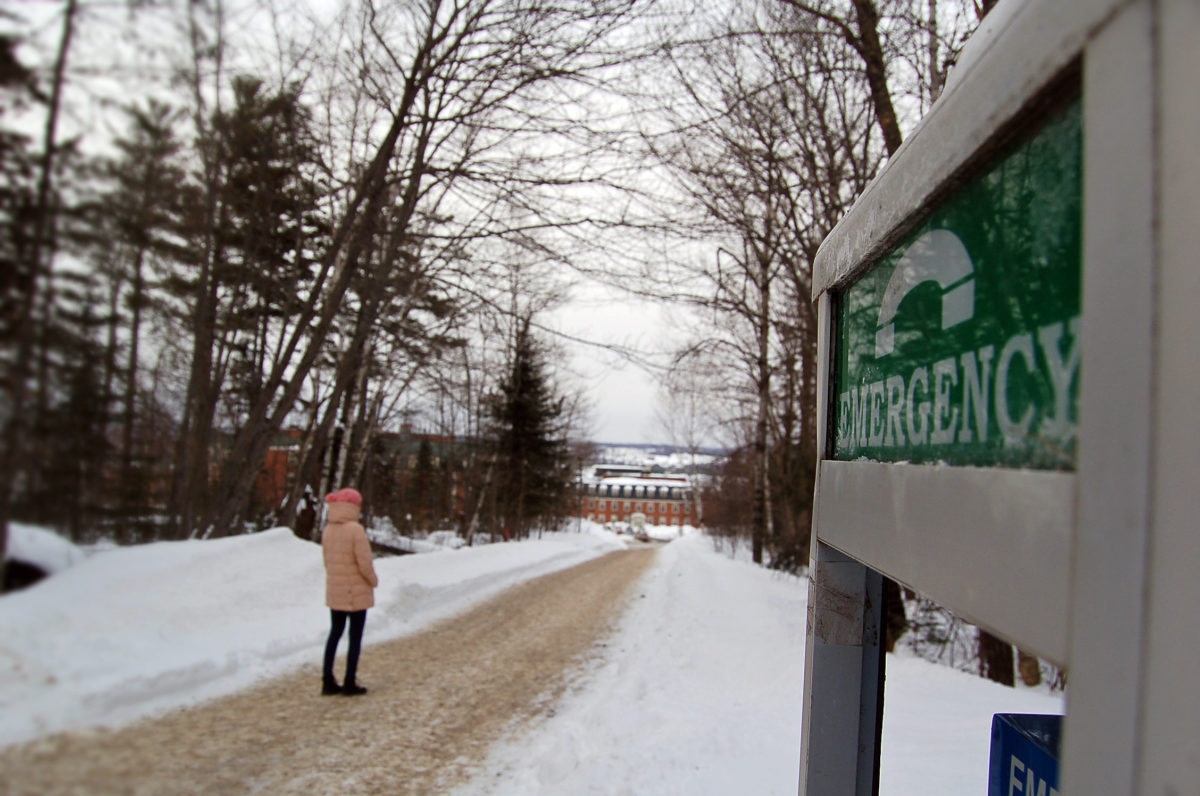Even in New Brunswick, St. Thomas University is overshadowed by the larger University of New Brunswick, with it’s constant scandals and explosions, and the more prestigious Mount Allison University. But that doesn’t mean news doesn’t break at the school. Sometimes, The Aquinian journalists asked hard questions of STU based on events around the country. Over the year, we took a look at serious issues like campus rape culture, or the precarious state of education in the province.
Other times, news sprang up organically at the school, like the forced relocation of the campus chapel, the financial shortfall coming next year, or the anonymous confessions page that had to be shut down. We at the paper were proud to bring relevant issues to the forefront of student life this year, and show you that STU can be a happening place.
We can’t wait to see what next year will bring.
Without further ado; your year in review:
STU’s financial picture starts dim, gets dimmer

It’s no secret around campus that St. Thomas University is struggling with low enrolment and restrictions put in place by the provincial government.
St. Thomas University President Dawn Russell said STU’s enrolment is never going to get back to the heights it reached 10 years ago at the school’s annual public budget meeting in March.
Last year, the school only had a $5,600 surplus – by far the smallest in recent memory. STU now projects a deficit of $650,000 to $1 million, and that doesn’t even cover the hundreds of thousands of dollars lost from a freeze on increases to tuition and operating grants in the province.
The projected enrolment is between 1,800-1,850 students. In the past ten years, enrolment has declined by 27 per cent. For the past two years, the school has overestimated enrolment in its budget.
Confessions of a rogue Facebook page
Nov 25
A harassment allegation got St. Thomas University students thinking more about their online behaviour, and the subsequent inquiry by UNB and STU brought on the voluntary closure of two STU-branded Facebook pages.

On Nov. 19, “UNBF and STU Confessions and Compliments” administrator Matt Kelly, a UNB student, began shutting the page down. A day later, “Spotted at STU” began its own shutdown. Both pages allowed users to post anonymously.
Online harassment was a big issue this year, with the Dalhousie University dentistry scandal, in which a closed Facebook group was used to post sexist, violent messages and jokes, bringing attention to Maritime universities.
St. Thomas spokesman Jeffrey Carleton said the university will continue to work with with law firm Cox & Palmer to explore its options to stop online harassment, a hot topic on-and-off-campus this year that will only continue to grow until we find a better way to zip our online lips.
Forest Hill house committees heat up the winter

Both Rigby and Chatham Hall saw new house presidents appointed midway through the year.
After a bathroom was damaged to the tune of over $2000 at December’s Rigby Rave party, then-Rigby-president Devan Barrieau stepped down and Natasha Mullins replaced her.
Barrieau cited disagreements over her role with Rigby residence advisors as a main reason for leaving, and negativity directed at the house from a member of residence life.
Rigby treasurer Catherine Mitchell said residence life told house committee members that mirrors were broken and tiles around a urinal were damaged. The incident happened in a bathroom near the Rigby Ballroom, which is not considered a part of the residence.
Mitchell Peardon, former president of Chatham Hall, was impeached for “conduct unbecoming” of the president, and for spending $300 on the house without taking any votes. He was replaced by Simon Greenough on Jan. 31.
Campus faith community sounds off on chapel change
Jan. 20

The change to all-you-care-to-eat dining at St. Thomas was never embraced by students, but it’s happening.
It’s an expected move for the school, as all other Atlantic Canadian universities now operate this way. What was unexpected was the reorganization of campus to make up for lost social space in the now limited-access cafeteria, which will boot the STU chapel out of George Martin Hall for next year. It will be relocated to Holy Cross House. The cost of relocation is to be determined.
The university projects a $279,000 deficit on food services and residences, which has much to do with declining residence rates.
Staff union strike will have big consequences
Jan 27.
Editor-in-chief MacKenzie Riley covered the prolonged labour negotiations between the school and its staff union.

After voting not to accept the administration’s final offer for a collective agreement Jan. 7, the St. Thomas University Staff and Administration Union began gearing up for a potential strike, while still negotiating through a mediator.
The faculty union supported their cause, but by law professors would have had to go to work regardless.
But it never came to that. On Feb. 10, the staff union signed its first collective agreement, the groundwork for which was laid as far back as 2010.
St. Thomas revamping sexual assault protocol
Feb. 17

One of the most discussed issues on Canadian campuses this year has been rape.
At St. Thomas University, six cases of sexual assault were reported to the school from 2009 to 2013, and on top of that, the STU journalism department’s New Brunswick Beacon was able to uncover several unreported instances and share those stories.
Our own Mary Fahey covered the issue for both the Beacon and The Aquinian.
A new sexual assault protocol is expected to be in place for next year to encourage those affected by sexual violence to report it, and make it easier to do so.

